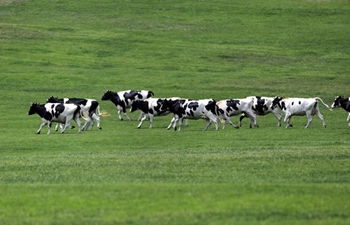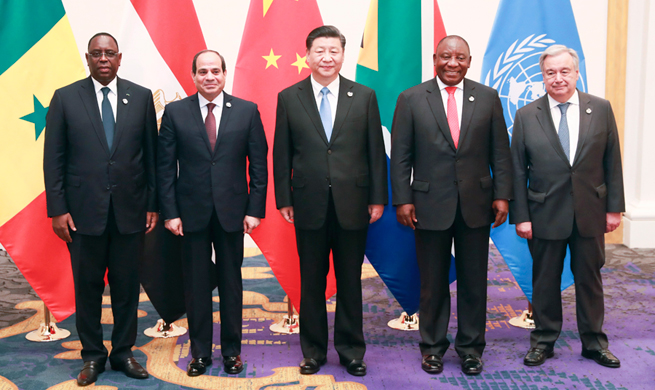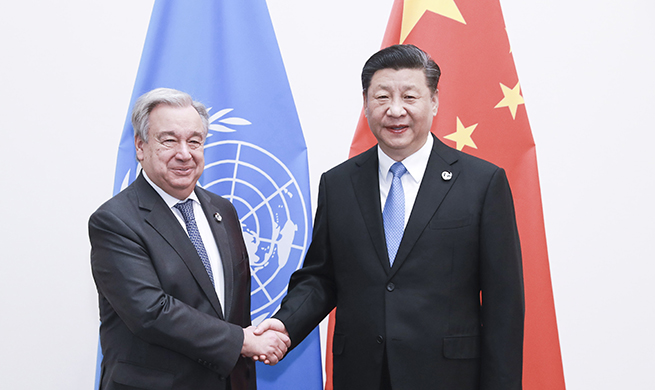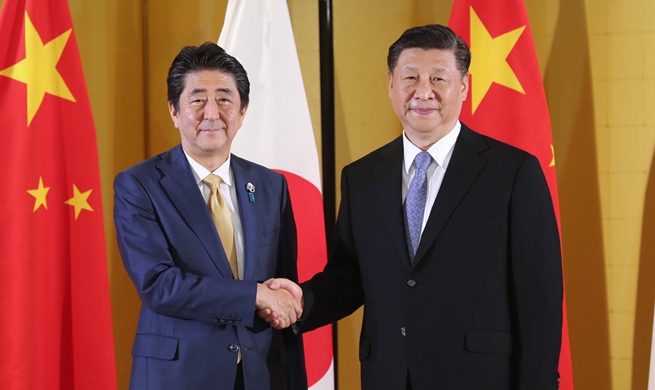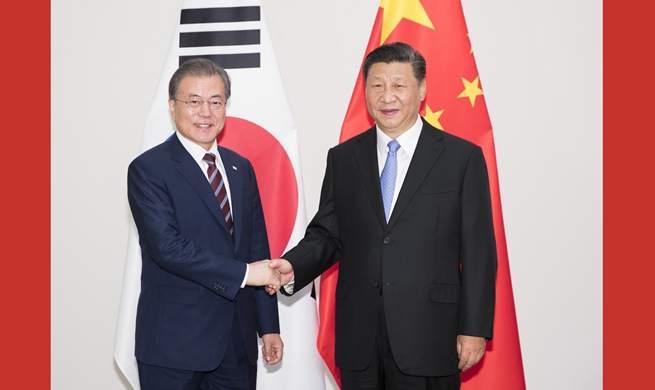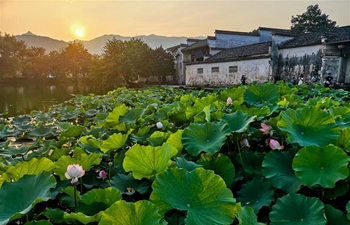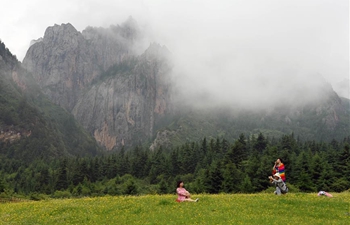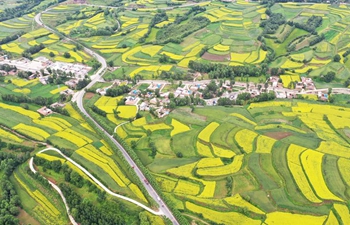BEIJING, June 28 (Xinhua) -- China has made extraordinary progress in protecting the environment and biodiversity, and the rest of the G20 members will benefit from its fruitful experience, said a Chinese expert.
By sharing success stories and working together towards a community with a shared future for humanity, China will continue making contribution to the G20's joint effort in tackling global challenges and building ecological civilization, said local conservationist and researcher Dr. Zhou Jinfeng.
CIVIL SOCIETY KEY TO CHINA'S ECO-PROGRESS
An active participation of the civil society is the key to China's notable achievements in building an ecological civilization, said Zhou, secretary-general of the China Biodiversity Conservation and Green Development Foundation (CBCGDF), a local non-profit public foundation and a member of IUCN.
Zhou stressed that the central authorities of the Communist Party and the government have attached great importance to building ecological civilization and safeguarding biodiversity, which has been the main driving force behind China's improving ecosphere.
At the same time, the Communist Party and the government have been encouraging civil society to actively take part in the cause, he said.
Chinese society has shown astounding enthusiasm and effectiveness as civil supervisors, whistleblowers and law enforcement assistants in carrying out the eco-policies, noted the scholar.
"The active participation of the civil society plays a crucial part in the battle against environmental challenges," he said.
One decisive move was to establish a legal mechanism allowing the society to sue violators of the environmental law on the basis of public interests, he said.
After the implementation of a new Environmental Law in 2015, the CBCGDF pioneered the file of environmental public interest litigations (EPIL), and well over one hundred cases have been taken to court, including scandals of grave pollution in Inner Mongolia's Tengger desert, toxic running tracks on campus, leaving lasting impacts in the country.
Also, civil society organizations (CSOs) have been inspiring the citizens to join in the construction of the ecological civilization as volunteers protect endangered species and wildlife habitat, as well as to report illegal activities.
In fighting electrofishing, for example, an interactive mechanism has been set up to coordinate the law enforcement departments and the civilian volunteers in cracking down on the risky practice, he said.
A network of wildlife habitat/natural reserves in vital areas across the country, which is guarded and patrolled by civilian volunteers, was praised by Cristiana Pasca Palmer, UN Assistant Secretary-General and executive secretary of the UN Convention on Biological Diversity, as "a great invention of the Chinese people," according to Zhou.
In addition, the CBCGDF has also been organizing academic debates for influential scholars, lawmakers, government officials and activists to brainstorm and work out legislative proposals to strengthen the legal frameworks to better defend the ecological civilization, he said.
WIDER INTERNATIONAL EXCHANGE AND COLLABORATION
In order to share experience and boost collaboration, the Chinese CSOs should not only "walk out" to intercommunicate with the world but also "invite in" counterparts and share what has been done effectively in the country, Zhou suggested.
The Chinese CSOs including CBCGDF have been actively promoting international exchange and cooperation, he said.
"We have also submitted a proposal for adding 'the building of an ecological civilization' into the text of the Convention on the Conservation of Migratory Wildlife Species (CMS) and other international conventions," Zhou said. "We expect the effects to be positive and multilateral."
On the other hand, the CSOs has been inviting leading experts and representatives from authoritative organizations to visit China and witness the honest efforts made by the Chinese people.
"We, civil society, should better play our part in telling the Chinese story," Zhou said, adding that the government had won worldwide respect for showing an open attitude towards the work carried out by CSOs.
Civil society's role has becoming increasingly significant role in addressing the world's major challenges including climate change, environmental issues, inequality, poverty among many others, concluded Zhou.
As one of the official engagement groups of G20, the Civil 20 (C20) -- convened earlier this year -- has submitted a policy pack from civil society organizations from 40 countries and regions to the G20 Summit held in Osaka, Japan from June 28 to 29, raising concerns on behalf of people around the world.
"It is our hope to have more CSOs joining us and to have greater support from local authorities, to make the world a better place for all," Zhou said.









